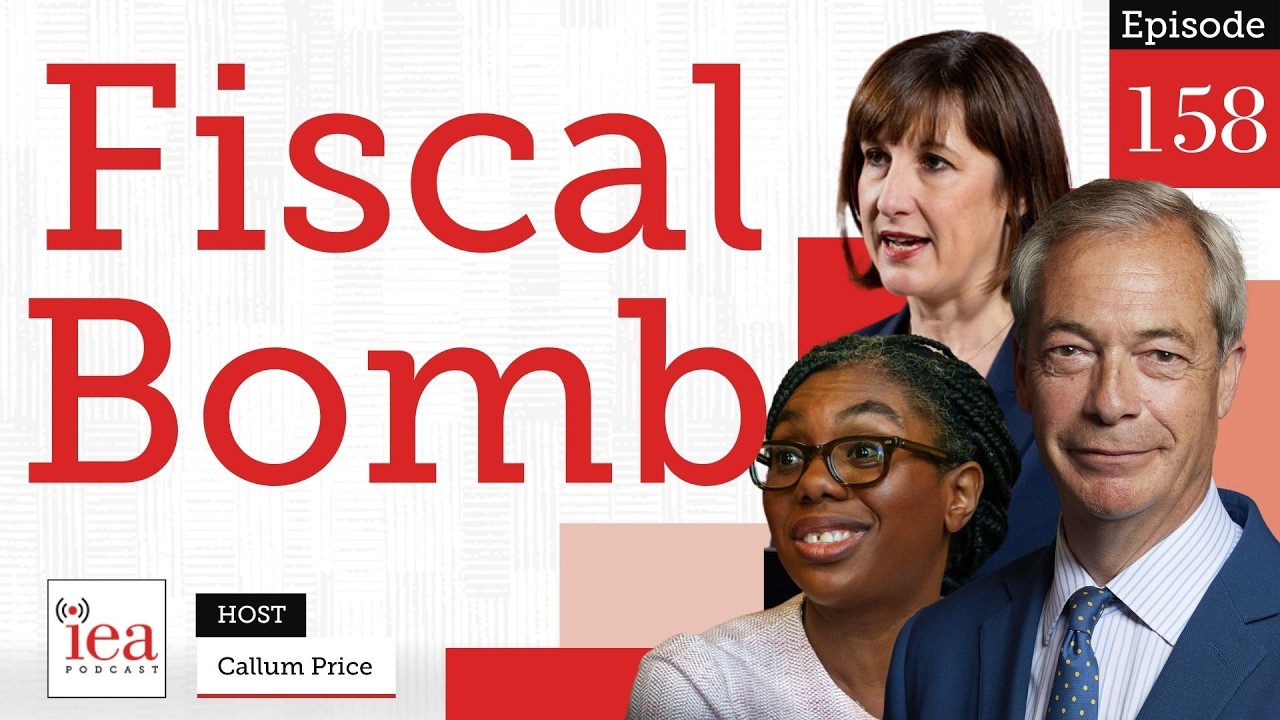The podcast examines Britain’s looming fiscal crisis driven by demographic pressures and aging-related benefits, highlighting political resistance to necessary reforms, especially for pensioner support, due to their electoral importance. It also criticizes judicial overreach, discusses varying political visions for economic policy, and argues that a fundamental reorganization of the state is essential for sustainable growth and long-term fiscal stability.
The discussion begins with an acknowledgment of the significant long-term fiscal challenge posed by spending on pensions, benefits, social care, and healthcare for the elderly, which the Office for Budget Responsibility (OBR) predicts could reach 11% of GDP—comparable to doubling everyone’s income tax. Despite this looming crisis, political action remains limited, often hampered by short-term electoral considerations and resistance from a predominantly older voting base. The speakers highlight how reforms to benefits like winter fuel payments are politically sensitive because the electorate, especially pensioners, have high electoral turnout and can influence policy decisions heavily through voter pressure.
The podcast explores the complexities of welfare and benefit reforms, criticizing the current system’s inefficiencies and the politicization of aging-related payments. The speakers suggest that many benefits for pensioners, such as winter fuel, are misnamed, as they often serve as general subsidies or bonuses rather than targeted supports. A more efficient approach would be to integrate these payments with means-tested pension credit, simplifying the system and enabling straightforward adjustments, such as raising pension credits if needs increase. The challenge is navigating the political resistance rooted in the electoral dominance of older voters, which complicates efforts to implement long-overdue reforms.
The debate then shifts to the legal system, lawfare, and the role of courts and activists in shaping policy. The speakers critique the evolving interpretation of the European Convention on Human Rights, noting how activist courts have expanded the scope of rights to include climate change rulings or asylum policies, often contrary to original intent. They argue that the rule of law should mean clear, general, and predictable laws, but it has been undermined by legal activism and a growing administrative state where courts intervene excessively in economic and social issues. The discussion emphasizes the need to restore the proper role of law, limiting judicial overreach and ensuring elected politicians hold decision-making authority.
The conversation then considers recent speeches from political leaders of various parties, revealing differing visions rooted in political incentives. Labour’s Rachel Reeves focuses on increased government investment and industrial policy, though this conflicts with fiscal constraints and traditional free-market principles. Nigel Farage promotes a populist agenda centered on tax cuts, limiting immigration, and reducing bureaucracy to appeal to working-class voters. The Conservatives’ Mel Stride advocates for deregulation and fiscal responsibility, aiming to rebuild trust after years of perceived mismanagement, but faces the challenge of overcoming past resistance from party supporters, especially on planning and environmental policies.
Overall, the speakers converge on the idea that Britain’s core problem is the need for a fundamental rethinking and transformation of its state apparatus. Whether addressing demographic pressures, the legal system, or economic policy, they argue that a ‘rewiring’ of government is essential to restoring economic dynamism and ensuring sustainable growth. Both parties are seen as hesitant or ill-prepared to undertake the comprehensive reforms required, with conservatives perhaps tempted to adopt radical approaches that may be counterproductive or superficial. The consensus emphasizes the importance of a well-considered, grounded, yet innovative strategy to reform the state and secure the country’s long-term economic future.
